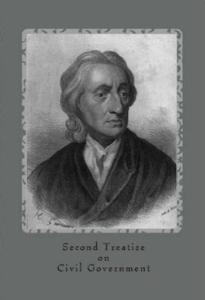
Want to learn the ideas in Second Treatise of Government better than ever? Read the world’s #1 book summary of Second Treatise of Government by John Locke and C. B. Macpherson here.
Read a brief 1-Page Summary or watch video summaries curated by our expert team. Note: this book guide is not affiliated with or endorsed by the publisher or author, and we always encourage you to purchase and read the full book.
Video Summaries of Second Treatise of Government
We’ve scoured the Internet for the very best videos on Second Treatise of Government, from high-quality videos summaries to interviews or commentary by John Locke and C. B. Macpherson.
1-Page Summary of Second Treatise of Government
Overview
John Locke discusses how governments are formed and why people move from a state of nature to a civil government. His ideas include popular sovereignty, the consent of the governed, protection and limitations on property, problems with absolute monarchy, and the ability for people to dissolve their government if they do not follow their bond of trust.
The book begins with a discussion of the state of nature. Men are born equal and have freedom to maintain their lives and property. They use reason to live in peace, but when someone breaks the law, society has authority to punish him as an example for others not to do so. The state of nature is free but men find that they can’t protect themselves from other people’s interference.
A state of war exists when one man uses force against another. It can only be lifted when the aggressor is killed or reparations are made. In terms of slavery, Locke states that it is just for a man to be enslaved if he forfeits his life due to his usage of force against his conqueror. Absolute monarchs who do so are guilty of creating a state of war between themselves and their subjects.
In order to form a civil government, people need to protect their property. Property includes your life, liberty (freedom), and possessions (land). In the state of nature, land is measured by how much work you put into it. You can claim any piece of land that you cultivate or harvest from its fruits. As populations grow and societies start using money as currency, a government is needed to regulate property.
Civil government is established when the people give up their rights for perfect freedom, judgment and punishment. They invest these powers in a legislative and executive power. This authority has limitations on its power so that it can act with the public good always in mind. Any breach of this bond of trust between the people and their authority can justify dissolving the government.
Civil society has a legislative and executive branch. The legislative branch makes the laws, while the executive enforces them and uses its power of prerogative to enforce good for the people even if it means going against or ignoring existing laws. If either of these branches act without regard for their duties, they are breaching their trust with citizens and forsaking their claim to obedience from them.
If a government has continually oppressed its people and ignored their appeals, the people can overthrow that government. They have the right to start over with new leadership, change it or create an entirely new system of government. A government only exists when it has the consent of the people, so if it fails them they can dissolve it.
Chapter I
John Locke begins the Second Treatise by referring to his first treatise, where he refuted Sir Robert Filmer’s arguments. He noted that it was impossible to find the actual heirs of Adam who had, according to Filmer, this right of succession to the throne.
The line of descendants from Adam is lost in history and cannot be traced. No one can prove that they are entitled to authority because they are Adam’s legitimate heirs.
Locke’s First Treatise and its rebuttals of Filmer’s propositions are clear. He reaffirms that Adam’s “private dominion and paternal jurisdiction” are not the basis of political power, because his theory may lead some to view government as merely derived from violence and force. Since he cannot accurately explain the rise of government or who should be in charge, Locke will spend the rest of the Second Treatise addressing these questions.
Locke makes it clear that political power is different from the powers of a father, husband or master. Although one person may have many kinds of power at once, they’re still different. Locke defines political power as having the right to make laws and define punishments for crimes, regulate property rights and defend the country from foreign threats. These powers are exercised for the public good only.






